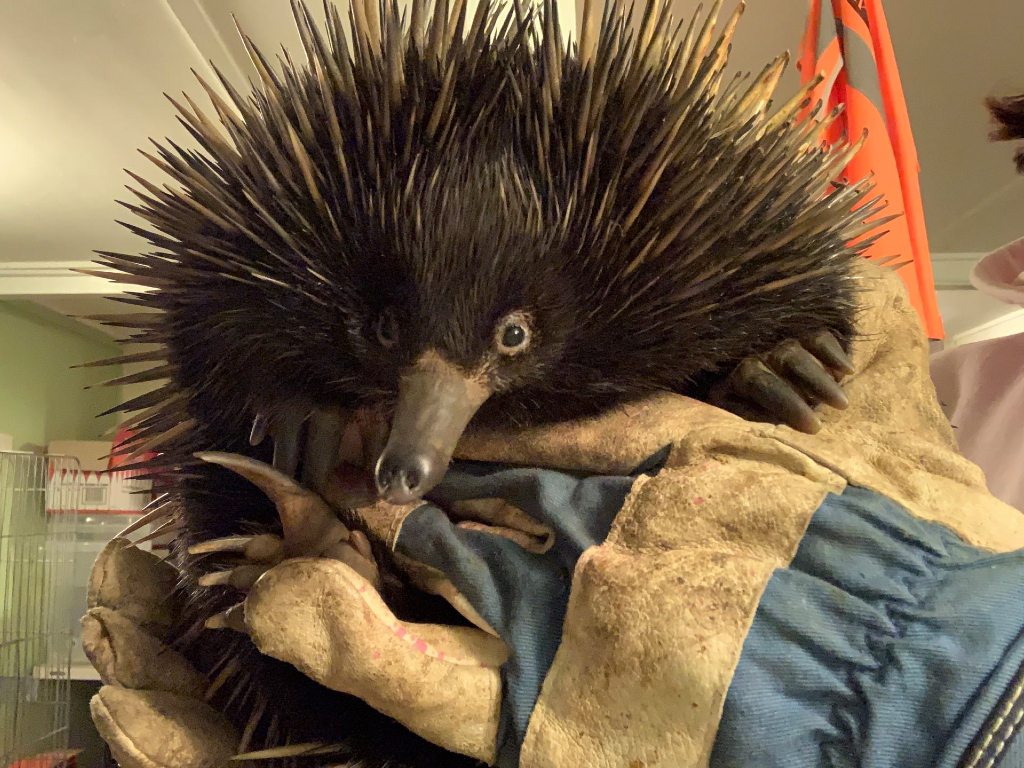A “hitchhiking” echidna is getting its happy ending soon, after a harrowing 10-kilometre trip that could’ve been life-ending last week.

The hedgehog-like egg-laying mammal, sometimes known as a spiny anteater, climbed into the vehicle’s engine and clung for dear life during the trip, a Facebook post by Australia’s Northern Rivers Wildlife Carers Inc. reads.
The driver reportedly saw the echidna hours earlier, but couldn’t find it after checking around their car, assuming it’d left.
“The driver had seen the echidna earlier, but when she checked around the car a few hours later and couldn’t see it, she thought it had moved on,” Chrisy Clay, a spokesperson for the organization, told ABC.
However, the animal emerged from the engine after the driver stopped, unfortunately sporting burned and melted spines.
“It had to be somewhere it could hold on because it was in the car for about 10 kilometres and it also had to be near something hot … Because we could see a patch of burned spines,” she continued.
“It was extremely traumatized. It was in a really bad state.”
Clay said that echidnas are especially at risk for getting hit by cars during this time, their mating season.
Luckily for this one, the Facebook post reads, it will make a full recovery and return to the wild soon — with a new name to boot.
“My daughter names all the echidnas that come into care,” Clay explained. “She’s affectionately called him Toasted.”
The long-nosed echidna, like Toasted, is native to New Guinea, animaldiversity.org says. The vulnerable species is primarily found in mountain forests and some highly-elevated alpine meadows.
It’s likely that many echidnas were lost during the devastating wildfires that ripped across Australia recently, the University of Sydney reported in January, given that it’s one of the only land masses that they call home.
—




Comments